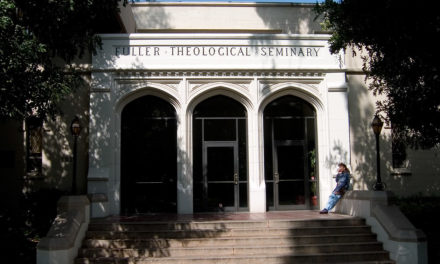By a vote of 267 to 157 on July 19, the U.S. House of Representatives passed H.R. 8404, the so-called Respect for Marriage Act, which was only officially introduced the day before the vote. The bill, whose fate in the Senate, seeks to accomplish two things: (1) repeals the federal Defense of Marriage Act (DOMA), the law declared unconstitutional by the U.S. Supreme Court in 2012; and (2) requires states to recognize same-sex marriages from other states.
A third stated purpose, to require states to recognize interracial marriages from other states, is, to put it generously, not a valid public policy concern in 2022. It is, rather, straight-up fear mongering. The chances of any state either prohibiting or not recognizing interracial marriages is zero. Possibly less than zero, if that were mathematically possible.
Why? Because as of 2015, according to Pew Research and based on U.S. Census data, one-in-ten married people had a spouse of a different race or ethnicity. That translates to 11 million Americans who are intermarried. America is not going back to the era of Loving v. Virginia any time soon.
H.R. 8404, introduced by Rep. Jerry Nadler, D-N.Y., was really intended to force representatives on both sides of the political aisle to commit to a position on same-sex marriage, presumably to impact the general election in November, in which all 435 members of the House are up for re-election.
And, unfairly, to characterize those who voted against the bill as opponents of interracial marriage, or, in other words, as racists. In an election year, no inference or accusation seems beyond the pale, unfortunately.
DOMA, passed in 1996 and signed into law by President Clinton, is the federal statute that defined marriage for all legal purposes at the federal level as “only a legal union between one man and one woman as husband and wife, and the word ‘spouse’ refers only a person of the opposite sex who is a husband or wife.”
It was declared unconstitutional in 2012 in United States v. Windsor, in a 5-4 decision written by Justice Kennedy. That case became the precursor to 2015’s Obergefell v. Hodges which created the constitutional “right” to same-sex “marriage” out of whole cloth.
Although DOMA is currently unenforceable because of the Windsor decision, it has never been officially removed from the U.S. Code, which contains the compilation of all federal statutes. H.R. 8404 would accomplish that.
To justify what would otherwise be a purely political tactic masquerading as legislation, Rep. Nadler argued in a House floor speech that Justice Clarence Thomas’ concurring opinion in Dobbs v. Jackson Women’s Health Organization makes the bill necessary.
“Nonetheless, the Supreme Court’s recent decision in Dobbs v. Jackson Women’s Health—which extinguished the constitutional right to abortion—has raised concerns among some people that other rights rooted in the constitutional right to privacy may be at risk, notwithstanding the Court’s assurance that Dobbs was limited to abortion,” Nadler stated. “This includes the right to marriage equality.
“In fact, in a concurring opinion in Dobbs, Justice Clarence Thomas explicitly called on the Court to reconsider its decisions protecting other fundamental rights, including the right to same-sex marriage.”
The second announced purpose behind H.R. 8404, to force states to recognize same-sex “marriages” from other states, is currently unnecessary because of the Obergefell decision.
Again, it’s all politics.
It’s also dubious whether Congress has the power under Article IV, Section 1 of the U.S. Constitution, known as the “full faith and credit clause,” to require such recognition. The full faith and credit clause, by its own terms, requires state courts to recognize statutes, official documents and court judgments from other states, but invoking that clause in support of out-of-state same-sex marriages is controversial and most likely unconstitutional.
For example, states license hundreds of different legal statuses in addition to marriage, from fishing to barbershops to guns. Unless a state grants some kind of reciprocity to its sister states in any given category, a fishing or some other license you obtain in Vermont won’t do you any good in Colorado. But reciprocity is up to each state, and Congress has never used the full faith and credit clause to impose that type of uniformity on such state-recognized statuses.
But it’s an election year, so political strategies can sometimes trump rationality while issues of more pressing need get ignored. It will be up to voters in November to sort through the political ploys and judge the House’s actions and priorities on issues of real importance to families, such as the sanctity of life, religious freedom, inflation, illegal immigration and the soaring national debt.
Photo from Shutterstock.






